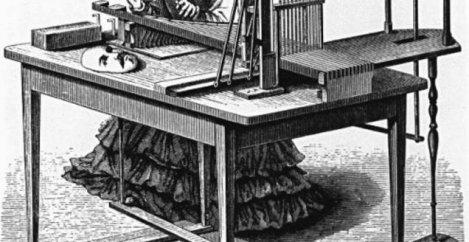September 4, 2019
UK workers ready to embrace automation
 UK workers are optimistic about the opportunities technology will create in the future as over 90 percent believe it is changing their workplace and everyday lives for the better. Professionals in the UK stand ready to embrace automation, as findings from over 14,500 respondents in the Hays What Workers Want 2019 Report (registration) suggest that they are interested in using the latest digital technology both in everyday life (70 percent) and even more so in the workplace (80 percent).
UK workers are optimistic about the opportunities technology will create in the future as over 90 percent believe it is changing their workplace and everyday lives for the better. Professionals in the UK stand ready to embrace automation, as findings from over 14,500 respondents in the Hays What Workers Want 2019 Report (registration) suggest that they are interested in using the latest digital technology both in everyday life (70 percent) and even more so in the workplace (80 percent).
This is echoed by close to three-quarters (73 percent) of professionals who say they have an open mindset towards digital transformation.
Further, more than four in five (86 percent) of respondents are embracing automation in the workplace and almost all (93 percent) believe that it is changing their working lives for the better. Almost as many believe the same for their everyday lives (92 percent).
When rating their understanding and ability to use the latest digital technology in the workplace, board members are most likely to rate themselves as experts (31 percent) compared to junior level staff (22 percent). There are notable generational differences too, as over a third (36 percent) of Generation Z consider themselves experts at using the latest digital technology in the workplace, compared to just 18 percent of Baby Boomers.
The growth of analytical skills
Workers are observing the impact automation is having on tasks carried out by their team, as 29 percent said the type of tasks have changed. 15 percent of professionals say their tasks have decreased, with over a third (36 percent) believing these to be administrative tasks. On the other hand, 12 percent said their tasks, specifically analytical tasks (21 percent), have increased.
Despite noticeable changes to tasks, professionals feel positive about the opportunities automation will bring. Over a third (39 percent) of respondents feel that automation offers more opportunities to add greater “human value” to an organisation now. More employers than employees felt this was the case (43 percent versus 36 percent). Overall, nearly half of respondents (48 percent) were optimistic about the opportunities in the future, which will come about as a result of automation.
The report claims that workers believe that automation allows them to contribute more value to an organisation and agree with their employers that successful implementation requires a positive attitude and openness to change. While employers recognise the importance of having an open culture where people are able to adapt to change, adequate training and better clarity on the benefits of automation will ensure employees stay optimistic about increasing automation in the workplace, it concludes.
Image: Joseph Faber’s Euphonia device of 1845














